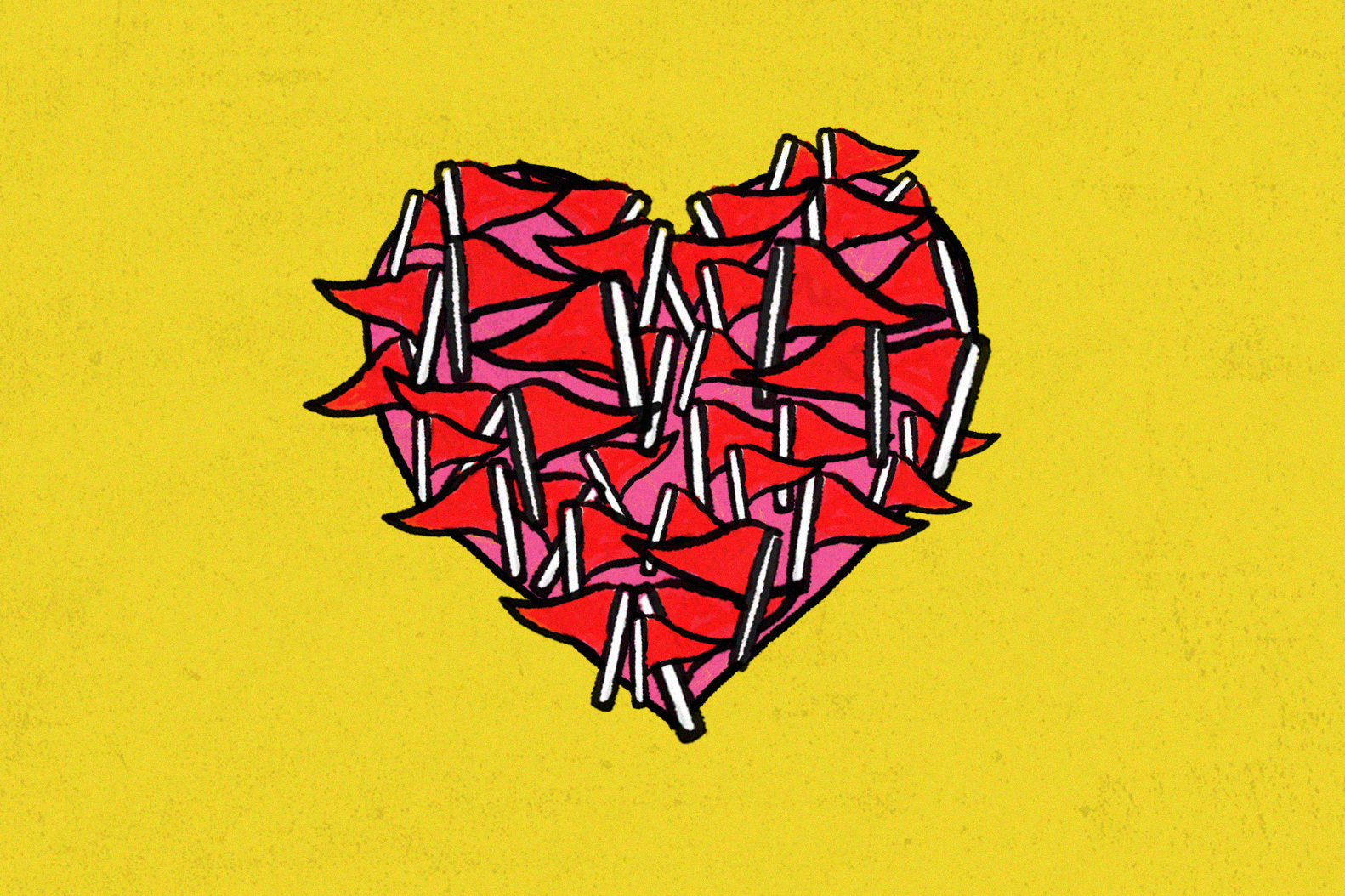“Eh that guy is a red flag.”
Everyone seems to be talking about red flags and green flags these days. But have you ever wondered how these terms came about? It might be a surprise to you, but “red flag” isn’t really 21st century slang. In fact, it’s been used figuratively since the 1700s.
A red flag is a sign of warning or danger. It’s used in wars, battles or even races to warn about potential hazards. In a more common context, red flags can also be found at beaches as an indication of dangerous water conditions.
Anyway, “red flag” has more recently become a term used to describe a person’s negative behaviours, especially in the context of romantic relationships.
That guy is so stingy — red flag. That girl always blames others — red flag. If a person displays certain traits or habits that others deem unacceptable or problematic in a relationship, it’s highlighted as a red flag.
But before we examine what red flags in a relationship are, I wish to first explore the idea of this label. Is it fair that we are calling out red flags in other people like this? After all, what if pointing out red flags like this is actually our own red flag?
“Red flag” is not fair or kind
Personally, I have always felt a slight discomfort whenever I find myself in conversations revolving around red flags. Saying another person has a red flag seems a little judgy; it always feels a bit gossipy and a bit like we’re cancelling them.
Because the term is used in private conversations, and often with people we consider as being in our trusted circle of friends, the judgements and comments we make often have no positive impact. Instead, they negatively affect how others view the person.
Furthermore, these judgements are made solely based on our perception. Seldom would people bring it up to the individual in question, because they would have already marked the person as having red flags to avoid or as someone to keep a distance from.
It’s almost impossible for the “red flag” label to be objective. We are calling out red flags based on certain traits that we perceive in people, but we are not giving them any opportunity to explain or prove themselves.

Even if what we observe about someone is indeed accurate, dismissing someone as a red flag is still unkind and perhaps a little too critical.
That guy is so stingy. He’s a red flag. But what if he is actually struggling to provide for his family?
That girl is so emotionally unstable. She’s a red flag. But what if she is dealing with some mental health struggles?
A little kindness and empathy go a long way.
After all, we are all imperfect. Wouldn’t it be nice if people offered a little more understanding towards the areas in our lives that we’re still working on?
Try putting ourselves in others’ shoes: would we feel good if someone called us a red flag because of some deep struggles that we’re going through?
A work in progress
On a more vulnerable note, I struggle to talk about red flags because I also wrestle with the question of whether I am a red flag myself.
I might not do horrendous things and I try to work on my flaws, but you never know — what if some of my behaviours or habits are just unacceptable to some?
I have heard people say, “That person is so avoidant in conflicts. He’s a red flag.” But I am still learning how to deal with conflicts and tensions healthily… am I a red flag?
Or some may say, “That person seems to spend quite recklessly. He’s a red flag.” But I am learning to be generous even though I don’t earn a lot… am I a red flag?

Such conversations often bring up the insecurities in me, especially if they involve certain areas that I am still growing in.
If someone were to call me a red flag, I would hope that my response would be something like: “Thank you for pointing these things out. I’m sorry. I’m a work in progress and I ask for your grace as I grow.”
A work in progress. That’s probably how we would prefer others to see us rather than dismissing us as red flags.
People can change
I was going to say that the only red flags are people who are unwilling to admit their weaknesses and take active steps to grow.
But on further thought, I realise even that is untrue. Nothing is permanent and people can indeed change.
Let’s think about our own lives: don’t we all have one or two areas that we know we want to grow in, but are taking some time and are places we are still waiting to see significant breakthroughs in?
We all have struggles that go deeper and are more complicated. We all have certain areas that we are more stubborn in.
Hence, I find “red flags” a little unfair because it seems like we are putting ourselves on a moral high ground and calling out someone else’s flaws — while being indifferent towards our own.
We are all red flags, but more
At the end of the day, this is not to say that we cannot have our considerations and criteria when it comes to choosing a partner.
This is simply a plea that we can perhaps be kinder in the process — in our speech, in our minds and regardless of whether the other party is aware of it.
At the root of it, we are all God’s children. And He loves us all the same. We are all red flags; we all have things in our lives that we’re not proud of. But these red flags did not stop God from loving us.
In fact, He sent Jesus to die on the cross for us so that we can be made righteous in Him (2 Corinthians 5:21).
… whether we are a maroon red, cherry red or scarlet red flag, let us look to the only red that truly matters – the love of Christ that ran red on the cross.
And don’t forget: God gives us the power to change, through the Holy Spirit.
The Bible tells us that the Holy Spirit will help us in our weakness (Romans 8:26) and He will help us to overcome sin (Galatians 5:16).
The Bible promises that if we walk by the Spirit, it will bear fruit (Galatians 5:22) in our lives.
So, whether we are a maroon red, cherry red or scarlet red flag, let us look to the only red that truly matters – the love of Christ that ran red on the cross.
By His blood, we have been cleansed from all sin (1 John 1:7). We are more than our worst imperfections, and we are now children of the Most High God (John 1:12-13).
This is the Good News for all.
- Have you ever used the term “red flag”? Why?
- Are there areas in your life that you hope to grow in? Is there anyone who can journey with you?
- Think of one person that you can bless this Valentine’s Day. Prepare something for them tomorrow!









